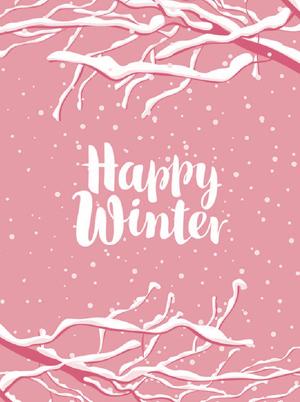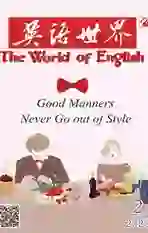下雪的季节 The Season of Snow
2020-03-08周领顺周领顺露丝·莳
周领顺 周领顺 露丝·莳



下雪的季節,稀罕的,也就是那个雪哟!
“千里冰封,万里雪飘”的世界晶莹剔透,银装素裹;“山舞银蛇,原驰蜡象”的大地玉洁冰清,清爽而浪漫2。
我喜欢下雪,喜欢看那悄无声息、飘然而至的漫天飞舞的大雪;喜欢在飞雪中傻站着,看自己转眼间变成须发皆白的耄耋老翁;喜欢看棱角分明的雪花飘落于掌心又转瞬消融的踪影;喜欢看雪天在白皑皑一望无垠的原野上村庄房屋被大雪“淹没”而显露出的只是冒烟的烟囱。大雪纷飞里,总能瞥见人们堆雪人找鼻子、装眼睛忙碌的身影,老远就能听到大人小孩借东讨西3的那份激情。春节了,还能看到雪帘中通红的春联透出的那份喜庆,正月里最好看的,是远处雪地里走亲串友在雪白的背景上游动的点点绿红。我喜欢走在雪地里,感受那咯吱咯吱的响声;喜欢看小鸟成群结队飘落而至匆忙觅食转眼间又扑棱棱飞走的身形……。抓一把雪,揉成蛋儿,塞入同伴的衣领;邀同学于树下,朝树身上跺一脚,看雪面儿抖落的壮观,听人家数落还要提防对方的“报复”行动。农民盼下雪呀,盼它个“正月十五雪打灯”“瑞雪兆丰年”4;城里人盼下雪呀,盼它增加湿润、减少疾病。孩子们盼下雪,盼的可是雪地里的嬉戏;青年人盼下雪,玉树下相机里留下的是芳姿倩影。
小时候,那个雪下得就格外地大。一夜无声,感觉天不该亮的时候窗户却已发白,窥视窗外,谁知早已是大雪封门。白雪映着青光5,满目都是玉雕的枝枝丫丫。裹在被窝里,就喜欢听大人在院里扫雪,也喜欢跟着大人手托竹竿、拴上箩圈将积雪从草房子上刮下。大人们望着雪,说要是雪变成白面可就不忍饥了;小孩子们望着雪,说要是雪能变成白糖,想啥时候解馋就能解馋。房檐下常常挂着冰柱,小孩子用力地咀嚼,牙冰木了,嘴却不闲,还说自己吃的是冰棍儿,人家吃的冰棍儿也不过就是多了一点点甜。漫天雪地里,最多的感受还是浪漫。带着狗,在沟沟坎坎的雪地里寻找黄色的出气孔6。陡然间,看到一只野兔从雪底下窜出来,惊愕之余,孩子和狗就拼命地在雪野深一脚浅一脚地狂奔,嘴里哈着白气,身上冒着热汗。捉到了,是惊喜;捉不到,也乐此不疲。茫茫的原野上,到处似乎都是一个模样,迷失方向也是常有的事,有时还要驻足观瞧,想努力找到人的足迹。
在乡下,大雪天围着火堆烤火也别有一番情趣。烤一把粉条,眼见在火苗中粉条由细变粗;执一把铁勺,听黄豆爆裂的声响,享受满屋飘着的香气。想吃咸的吗?就有人积极,撒入的却是一把盐似的雪7。看哪,孩子们闹翻了8,旋即重归于好,一起凝视雪水在铁勺里、在那咝咝声中消逝。烤火?还想长点见识。听大人们侃大山,侃中原比不上大东北,那里雪更大,天更冷,尿出来的干脆就是冰棍棍儿,掉地上也不烂,之后准能听到唏嘘声9不断;侃冰河里刨个洞,就有鱼儿往上跳,之后还能听到咂嘴声,说鱼肉有啥好吃,刺又多又乱10;侃冰河上能开坦克车,就忍不住再尝试到池塘的冰面上沿冰11,去寻找那份惊险。
正月一过, 就很难觅到雪的踪迹。不过,苍天或许有情,在桃花烂漫的初春时节,差不多还要恩赐人间一场与桃花共舞的飞雪。“三月还下桃花雪呢”12,也就成了缠绵于雪的人们新的希冀。
又是一个下雪的季节。我渴望感受多雪的故乡和我那风情万种的北国。
For the season of snow, a most welcome sight for the eyes is the snow itself.
Ice-bound and snow-covered, the vast landscape is a crystal white with all colors drained away from it, and the undulating plain a romantic purity of icy powder with white mountains meandering their way across it.
I love snow. I love to watch fluffy snowflakes swirling and twirling down gently and silently from the heavens. I love to stand in the fluttering snow and to be dusted white shortly over the hair and beard like an old man. I love to catch pointed snowflakes on the palm and see them melt instantly. I love to gaze upon the village houses that are submerged in a white mantle of snow, with only their smoking chimneys being distinctly visible. Amid snow flurries there are always people who are busily immersed in building a snowman, adding a nose here, putting eyes there, or are loudly enthusiastic in borrowing items from one household to another. Shining through the fringes of snowy icicles that are hanging off the eave is the festivity of the red couplets pasted on the front door for celebrating the Chinese Spring Festival. The most pleasing sight for the Chinese lunar January is the tiny human figures of different colors moving about in the distant snow. I also appreciate the crunchy protest of the snow beneath the boots, or the sight of little birds that land on the ground in flocks in a hurried forage for food and then flap away in a rush of wings. And the snow tricks, too. One scoops up some snow, shapes it into a ball and slips it into the collar of a playmate. Or one induces a pal to go under a snow-coated tree, and stomps at its trunk, sending snow cascading down onto the victim; while he is enjoying the spectacular scene, he is bombarded with complaints from his adversary and at the same time has to watch out for a counterstroke. Snow is a blessing, expected by farmers for the bountiful harvest it can herald for the coming autumn, by urban people for a moistened air and a reduced spread of diseases, by children for play and games in the snow, and by young people for the pictures they can take of themselves against snow-laden trees.
I used to see much heavier snowfalls when I was small. Snow drifted down, soundless, during the night, and dawn awoke early to reveal a white world outside the window and unexpectedly a snow-blocked front door as well. The snow was glowing white with a bluish tint, and turned trees and their branches all into statues of white crystal. It was a joy snuggling warm under the cozy bed cover and listening to my parents clearing snow in the courtyard, or sometimes helping them scrape snow off the roof of the thatched house with a bamboo pole attached with a flat basket on its top. Snow being so white, how parents wished it were flour that could satisfy hunger, how children wished it were castor sugar that they could taste whenever they wanted to. There were often icicles dangling from the eave and they were a tasteless delicacy for children. Though their teeth got numbed from chewing on these icicles, they did not forget to pretend that they were eating popsicles, ones that were just lacking in a sweet flavor. In the vast stretches of snow, the most frequent sensation was the romantic ambiance. Out in the lumpy snow, followed by a dog, children were trying to stalk hares by way of locating their brownish breathing holes; at any moment a hare could suddenly burst into view from beneath the snow. Immediately the children and the dog limped along in their desperate chase after it, breathing frostily and sweating heatedly. It was a delight if they managed to catch it, and if not, they would never feel frustrated. As the immense snow blanket seemed to be disguising the world in the same uniform, losing the sense of direction was not uncommon, and one had to stop from time to time to look for human trails to follow.
In rural villages, snow days were also happy moments when villagers sat around a fire warming themselves. Bean starches swelled thick over the fire in no time. And beans, frying in an iron vessel over the fire, gave off crackling sounds and an inviting aroma as well. What about adding a salty taste to the beans? Someone mischievously sprinkled some snow into the vessel! Alas, children fell out with each other for that, but they reconciled instantly, watching together the sizzling evaporation of the snowy water in the vessel. Around the fire for warmth only? No. Something eye-opening would enhance the fun. Adults shot the breeze about how much colder it was in the north east than in the central region for heavier snows and lower temperatures. They said in the north east pee would come out frozen and remain unbroken even when hitting the ground, which was followed by disbelieving hisses from the listeners. Hearing that fish would jump right out of a river through the hole cut into its frozen surface, someone smacked his mouth hungrily but comforted himself by saying what was the good in eating fish with so many tiny bones in it. And the frozen rivers there, as adults said, could even support a tank driving across, and that sparked a craving in the child listeners for an adventure of skating on a frozen pond.
After the lunar January, snow is a rarity. However, the heavens may shed mercy on snow lovers, and in early spring when peach trees are in full blossom shower down an occasional snow, with snowflakes whirling and dancing in the air with swaying peach flowers. Thus the wish for snow lingers into March in the heart of people loving snow.
It is a season of snow again. I yearn for the snow in my hometown and the wintry charms of my central north.
1二级教授,博士生导师和博士后合作导师,中国英汉语比较研究会常务理事,中国翻译协会翻译理论与翻译教学委员会委员,扬州大学学术委员会委员,扬州大学“杰出人才”和“领军人才”,扬州大学翻译行为研究中心主任,《翻译论坛》杂志执行主编,“译者行为批评”理论的原创者。本文选自《散文自译与自评》[周领顺,露丝·莳(Lus Shih),苏州大学出版社,2017]。 2这一段描写的是北国雪景的壮观景象,作者将毛泽东《沁园春·雪》一诗中的诗句引用到原文中,作为“世界”和“大地”的修饰语,来增强表达气势,以获得更好的表达效果。译文将诗句中的“山”“银蛇”“蜡象”等意象加以整合,将“千里冰封,万里雪飘”意译为ice-bound and snow-covered,将“山舞银蛇,原驰蜡象”意译为the undulating plain (is) a romantic purity of icy powder with white mountains meandering their way across it。
3“借东讨西”指村人走东串西借东西,可译为borrowing items from one household to another。 4“正月十五雪打灯”和“瑞雪兆丰年”是中国文化中的农谚,前者完整的表述是“八月十五云遮月,正月十五雪打灯”,意思是说,农历八月十五这一天如果是阴天或者下雨,则来年正月十五这一天就会下雪。原文引用“正月十五雪打灯”这一句,只是借用了其中的“雪”的意象,来增强话语表达的气势,简单地说就是“农民盼下雪”的意思,译文不一定非得把这个农谚完整地表达出来不可。因此,译者将意义加以整合而译为:Snow is a blessing, expected by farmers for the bountiful harvest it can herald for the coming autumn。
5白雪为什么会映着青光?雪越厚,吸收的红光越多,从而显出蓝色,天刚蒙蒙亮时,光线暗淡,厚雪愈加显得发蓝。“白雪映着青光”可译为:The snow was glowing white with a bluish tint。
6“黄色的出气孔”是野兔在雪地里活动时留下的痕迹,野兔躲在厚雪底下,需要呼吸,洞口因野兔出入而沾染黄色的痕迹,可译为their brownish breathing holes。
7“就有人積极”是反语,译文中添加mischievously一词,表达了这个反语的言下之意。 8孩子们闹翻是因为有人恶作剧,在炒豆子的锅中撒了雪,可译为children fell out with each other for that,译文中添加介词短语for that,以明确“闹翻”的原因。 9“唏嘘声”描述的是听者难以置信的反应,可译为which was followed by disbelieving hisses from the listeners。 10听者听到“鱼”就馋,咂嘴巴,但吃不到,只能自我安慰说“鱼肉有啥好吃”,这是“酸葡萄”心理,可译为someone smacked his mouth hungrily but comforted himself by saying what was the good in eating fish with so many tiny bones in it。 11河南方言,意为“滑冰”。
12“三月还下桃花雪”是中国文化中的农谚,说的是桃花盛开的春天还有下雪的可能。在上文,原文对于三月的下雪美景已经作了描述,译文也充分表达了原文描述的桃花雪的美景。这个农谚表达的意思与上文同,此处引用属于语义叠加,因此译文可省略这个农谚的形象。
